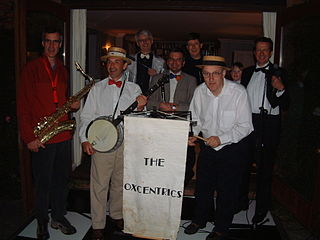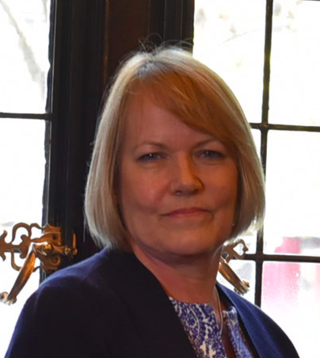Related Research Articles
Beat music, British beat, or Merseybeat is a British popular music genre that developed, particularly in and around Liverpool, in the late 1950s and early 1960s. The genre melded influences from British and American rock and roll, rhythm and blues, skiffle, traditional pop and music hall. It rose to mainstream popularity in the UK and Europe by 1963 before spreading to North America in 1964 with the British Invasion. The beat style had a significant impact on popular music and youth culture, from 1960s movements such as garage rock, folk rock and psychedelic music to 1970s punk rock and 1990s Britpop.
Simon Webster Frith is a British sociomusicologist and former rock critic who specializes in popular music culture. He is Tovey Chair of Music at University of Edinburgh.

Catherine Hall is a British academic. She is Emerita Professor of Modern British Social and Cultural History at University College London and chair of its digital scholarship project, the Centre for the Study of the Legacies of British Slavery. Her work as a feminist historian focuses on the 18th and 19th centuries, and the themes of gender, class, race and empire.

The Oxcentrics is a Dixieland jazz band founded in 1975 at Oxford University. The band's name was derived from The Oxontrics, an original 1920s jazz band. Several members were from University College, where many of the rehearsals took place. They played at a number of Oxford Balls, for the Oxford University Jazz Club, on May Morning, and for other events, including playing on punts on the River Cherwell in Oxford. The line-up, mostly Oxford University undergraduates, who recorded The Halcyon Days of the '20s & '30s on 29 February 1976 at the Acorn Studios in Stonesfield, Oxfordshire, and the songs recorded were:
British jazz is a form of music derived from American jazz. It reached Britain through recordings and performers who visited the country while it was a relatively new genre, soon after the end of World War I. Jazz began to be played by British musicians from the 1930s and on a widespread basis in the 1940s, often within dance bands. From the late 1940s, British "modern jazz", highly influenced by American bebop, began to emerge and was led by figures such as John Dankworth, Tony Crombie and Ronnie Scott, while Ken Colyer, George Webb and Humphrey Lyttelton played Dixieland-style Trad jazz. From the 1960s British jazz began to develop more individual characteristics and absorb a variety of influences, including British blues, as well as European and World music influences. A number of British jazz musicians have gained international reputations, although the music has remained a minority interest there.

Jane Jarvis was an American jazz pianist. She was also known for her work as a composer, baseball stadium organist and music industry executive.

Kenrick Reginald Hijmans Johnson, known as Ken "Snakehips" Johnson, was a swing band leader and dancer. He was a leading figure in black British music of the 1930s and early 1940s before his death while performing at the Café de Paris, London, when it was hit by a German bomb in the Blitz during the Second World War.
Jane Ira Bloom is an American jazz soprano saxophonist and composer.
Christopher Noel Rawsthorne was a British liturgical and concert organist and composer of music for his own instrument, as well as choral music.
Tara Brabazon is the Australian Dean of Graduate Research and the Professor of Cultural Studies at Flinders University in Adelaide, Australia, a fellow of the Royal Society for the Encouragement of Arts, Manufactures & Commerce and director of the Popular Culture Collective. She has previously held academic positions in the UK, New Zealand and Canada, won six teaching awards, published 20 books, written 250 refereed articles and contributed essays and opinion pieces on higher education and the arts. She was made a Member of the Order of Australia in 2019.

Dame Jane Elizabeth Francis, is the Director of the British Antarctic Survey. She previously worked as Professor of Palaeoclimatology at the University of Leeds where she also was Dean of the Faculty of Environment. In 2002 she was the fourth woman to receive the Polar Medal for outstanding contribution to British polar research. She is currently the Chancellor of the University of Leeds.

Catherine Jane Crozier Pickstock is an English philosophical theologian. Best known for her contributions to the radical orthodoxy movement, she has been Norris-Hulse Professor of Divinity at the University of Cambridge since 2018 and a fellow and tutor of Emmanuel College, Cambridge. She was previously Professor of Metaphysics and Poetics.
Shirley Joy Thompson is an English composer, conductor, and violinist of Jamaican descent. Her output as a composer encompasses symphonies, ballets, operas, concertos, and other works for ensembles, as well as music for TV, film, and theatre. Her New Nation Rising, A 21st Century Symphony was composed in 2002 and debuted in 2004. Also an academic, she is currently Professor of Music at the University of Westminster. In the 2019 New Year Honours she was appointed an Officer of the Order of the British Empire (OBE) for services to Music.

Jane Arthur, was a Scottish feminist, philanthropist and activist. She was the first woman to be elected to a Scottish school board.

Women in music include women as composers, songwriters, instrumental performers, singers, conductors, music scholars, music educators, music critics/music journalists, and in other musical professions. Also, it describes music movements, events and genres related to women, women's issues, and feminism.

The Breakdown was a 1926 painting by Scottish artist John Bulloch Souter (1890–1972) which stirred controversy in the United Kingdom during the Jazz Age. The work depicted a black jazz musician playing the saxophone while a naked white woman dances, as if in a trance.
Michael Spitzer is a British musicologist and academic.
Sara Cohen is a musicologist and academic. She completed her doctoral studies at the University of Oxford; her DPhil in social anthropology was awarded in 1987. The following year, she joined the newly founded Institute of Popular Music at the University of Liverpool as a research fellow; she has remained with the IPM since then, and is its director as of 2018. Since 2017, she has also been the James and Constance Alsop Professor of Music at the University of Liverpool. She is a specialist in ethnographic research into popular music. Her first book Rock Culture in Liverpool (1991) has been described as "a landmark publication that introduced ethnographic methodology into the heart of popular music studies ... Cohen's book was the first to focus in detail and depth on a small number of musicians and their culture".

Jane Louise Hurst is the William Prescott Professor of Animal Science at the University of Liverpool. She is Head of Mammalian Behaviour & Evolution. She studies scent communication between mammals, as well as animal welfare and pest control. She served as the president of the Association for the Study of Animal Behaviour from 2010 to 2012.
Buddy Gilmore, sometimes spelled Buddie Gilmore, was a jazz drummer. He deployed a greatly expanded drum kit as part of his vaudeville performances and was a showman as part of popular orchestras. The Prince of Wales took lessons from him and performed with him.
References
- ↑ "Prof Catherine Tackley", University of Liverpool. Retrieved 29 December 2018.
- ↑ "The evolution of jazz in Britain c. 1880–1927 : antecedents, processes and developments", EThOS (British Library). Retrieved 29 December 2018.